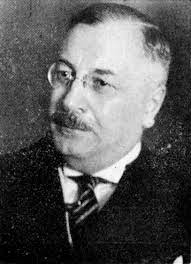Gusti, Dimitrie

Bio: (1880-1955) Romanian sociologist, ethnologist, historian, and philosopher. Dimitrie Gusti received his doctorate in philosophy from the University of Leipzig and then taught in Romania at the universities of Iasi and Bucharest. He was president of the Romanian Social Institute and the Romanian Academy of Sciences. Gusti is best known for his own theoretical and methodological sociological approach, which emphasized monographic research, so the whole approach, of which he was the founder and leader, is often called the Bucharest Monographic School.
Gusti believed that sociology must study and interpret social phenomena as a whole, and encompass their interdependence and functional integrity. In his opinion, all social relations and processes are limited by functional frameworks. Sociology should study social units, therefore, groups of people and their life forms (gender, family, settlement, friendship, school, church, etc.). The main integrating factor in society is the subjective principle, which he described as "will". The will is primarily individual, that is, "human will" and is manifested in "conscious action" aimed at achieving goals. The "volitional center" of an individual consists of three fundamental aspects: self-awareness manifested in self-love; projects toward others as sympathy (moods); and manifests itself in religiosity. The basic social factor is not the individual, but a partnership based on sympathy. A social group is the totality of the relations and actions of its members, which gathers a sense of solidarity and a common mentality, and is manifested in joint work on the realization of common material and spiritual needs.
Social groups are realized through social manifestations, which fall into four main categories: economic, spiritual, legal, and political. All social manifestations exist and act at the same time and cannot be reduced to some other manifestations, so this view forms the basis of his law of "parallelism" of social manifestations. Social groups and their manifestations operate in the conditions given to them by their external environment, and that environment constitutes what he calls "frameworks". Frameworks can be: cosmic, biological, historical, and mental. All three spheres (groupings, manifestations, and frameworks) are not connected by a causal connection but can be understood only in their entirety as a specific sui generis phenomenon. Gusti believed that sociology should connect theory and practice and thus enable and implement social reforms in culture, economy, politics, and law. Empirical research of social phenomena should contain a complete unity of theory, practice, methods, and techniques of research.
It is the monographic method that allows sociologists to best achieve such unity in their research. When conducting monographic research, the choice of key problems and the simultaneous testing of working hypotheses is of great importance. The research should be approached without prejudice, but on the other hand, as much existing information as possible should be collected before the research begins. Specific methods that were used in his monographic research are data analysis, and interviews, while special attention was paid to observations. Monographic research should combine and apply both quantitative and qualitative methods, to achieve the best results and gain a comprehensive and complete understanding of the studied phenomenon. Gusti and his associates used the monographic method to explore individual villages, and entire regions, but also specific social phenomena, such as conflict or friendship. Gusti described in detail the key features of the monographic method in his book Principles of Sociological Monographs (1946). His monographic method has been very influential in the design and conduct of monographic research in many other countries. The most important sociological works of Gusti are: Sociological Practice and New Ethics (1908), Military Sociology (1935-1946), Knowledge and Action in the Service of the Nation (1939), Sociological Problems (1940), and Science of Social Reality (1941).
Fields of research
Agriculture Anthropology Art Character, Social Economy Family Law Morality Personality Politics Poverty Psychology RuralTheoretical approaches
Monographic Sociology (Bucharest School)Main works
Egoismus und Altruismus (1904);
Die soziologischen Betrehungen in der neuen Ethik (1908);
Cosmologia elenă (1929);
Sociologia militans, 3 vol. (1935-1946);
Cunoaștere și acțiune în serviciul națiunii, 2 vol. (1939);
The Royal Foundations of Rumania (1939);
Problema sociologiei (1940);
La science de la realite sociale (1941);
Indrumari pentru monografile de sociologice (1946).

